#Jin clan
Explore tagged Tumblr posts
Text
So I feel that all agree that Jin family in a modern setting would be that type of rich family aesthetic that we read in billionaires romance but how would be the dark academia, old style house tip castle family ? It couldn’t be Lan because of their light palette and personalities, Jiang’s give to much Florida or tropical Island vibe. So the real question is Nie or Wen would be the dark castle owners ?
#mo dao zu shi#the grandmaster of demonic cultivation#jiang clan#nie clan#lan clan#Jin clan#wen clan#lan wangji#wei wuxian#lan xichen#nie mingjue#jin guangyao#jin zixuan#jiang yanli#jiang cheng#modern au mdzs
23 notes
·
View notes
Text
Even though we have confirmation of his heritage, what if Jin Guangyao wasn't even a Jin. I just read a blurb where WWX made a talisman that showed close relatives and he wasn't a Jin. I just think that would be an interesting read, especially if it's revealed after he's been acknowledged and everything.
24 notes
·
View notes
Text
Módào Zǔshī Hanakotoba Analysis Part 2
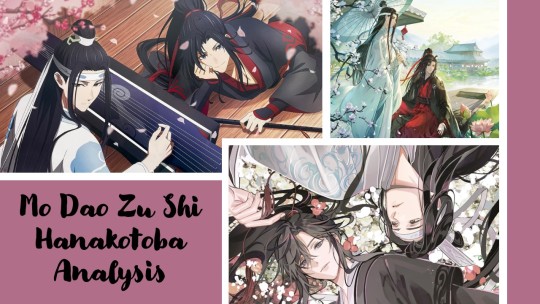
◤━━━━━━━━━◥✿◤━━━━━━━━━◥
-> 4) Lotus/Water Lily
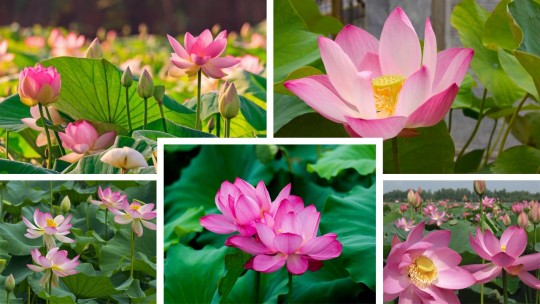


-> 4.1.) Lotus/Water Lily Flower Symbolism:
Despite having a few differentiating characteristics, lotuses (Nelumbo nucifera) and water lilies (Nymphaea) are often confused with one another. As a result, there is a lot of overlap in their symbolic meanings, to the point that they convey the same sentiments across multiple cultures. In China, lotuses are known as lián huā (蓮花) or hé huā (荷花), whereas water lilies are known as shuìlián (睡莲) and héhuā (荷花). Lotuses are known as the "gentleman's flower" in China because they grow upwards pure and unstained from the mud. The flower is thus associated with perseverance, elegance, resilience, as well as ultimate purity of mind and heart. The lotus is revered as a sacred flower in Buddhism, representing the essence of divine beauty, wisdom, humility grace and rebirth. It is also a sign of moral integrity, emphasising the importance of maintaining inner purity and virtuous behaviour in the face of worldly temptations. The word “l蓮” (lián) also sounds like “連續” (liánxù) which means continuous. This conveys the idea of constant growth and spiritual progress thus making the lotus a symbol of the continuous pursuit of knowledge, wisdom, and enlightenment. The lotus also has profound significance in Taoism, representing serenity, balance, and the "interconnectedness of all things and the inherent harmony within the universe". The lotus' adaptability to various environments embodies the Taoist concept of living in harmony with nature, flowing with life's rhythms, and preserving equilibrium in the face of change. Additionally, the lotus' ability to rejuvenate and blossom year after year, despite the shifting seasons, represents the continuous cycle of life, death, and rebirth. Part of the lotus flower’s Chinese name “l蓮” (lián) is homophonous with the words “聯” (lián) meaning “to bind/connect as in marriage”; “戀” (liàn) meaning to love; and “廉” (lián) meaning modesty. As a result, the lotus flower has also come to symbolise union, love and marriage in Chinese culture and is thus a prominent motif in both historical and modern works to convey love and emotion. Lotuses are commonly used in bridal bouquets as a symbol of luck and 100 years of love. A single stem bearing two lotus flowers represents the desire for harmony and a shared heart. This is derived from the fact that the “荷” (hé) in the lotus’ other Chinese name also means “union” and is homophonous with the word “和” (hé) meaning uninterrupted or one after another. Furthermore, a lotus flower with a leaf and bud symbolises complete union. In Japan, lotuses are called ren (蓮) or hasu (はす), while water lilies are called suiren (睡蓮). In hanakotoba, lotuses symbolise a pure heart, eloquence, sacredness and departing love—while water lilies symbolise a pure heart, faith and trust. Additionally, both flowers are also associated with rebirth, transformation, enlightenment, beauty, grace, and perfection. In Western floriography, water lilies symbolize purity of the heart, virtue, innocence, achieving great things, beauty rising from humble beginnings and bringing together separate things. Pink waterlilies are commonly associated with feelings of admiration. Since its scientific name was derived from the mythical Greek nymph, water lilies also symbolise dangerous beauty and estranged love.
-> 4.2.) Lotus'/Water Lilies in MDZS:
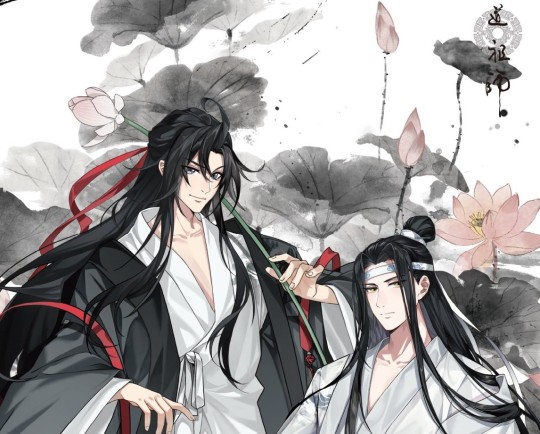
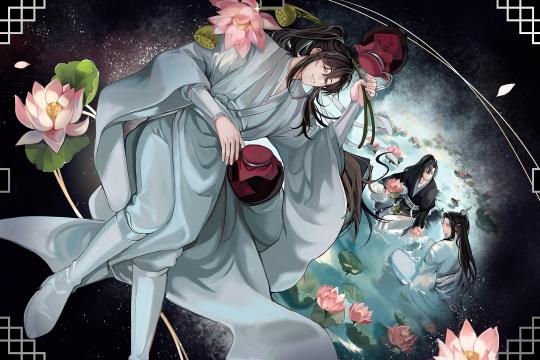
Lotuses are the most commonly referenced flower in MDZS, and they are generally associated with the Yunmeng Jiang clan. This is due to the clan's insignia, a nine-petaled lotus, as well as the name of their residence, Lotus Pier. According to the novel, the compound is surrounded by “pink blossoms with broad jade-green leaves rose from the depths of the lake, whose waters spanned hundreds of kilometres […] giving the lovely scenery a sort of charming innocence” (MXTX, v. 3, p. 9).
The lotus’ symbolic meanings best embody the characters of Jiang Yanli and Wei Wuxian. > 4,2,1) Jiang Yanli: The flower's symbolic representation of virtue, modesty, innocence, beauty, faith, grace, and purity of the heart perfectly conveys Jiang Yanli's kind and caring demeanour. Jiang Yanli's relationship with Jin Zixuan is a key aspect of her character. The lotus' symbolism of love, union, marriage, and a shared heart corresponds with this. Additionally, in both the web drama and MDZS Q, Jin Zixuan grows lotus flowers as a gift for Jin Yanli. > 4,2,2) Wei Wuxian: Wei Wuxian's life can be divided into three parts: his time as the first disciple of the Jiang clan, his time as the Yiling Laozu, and his life after his resurrection as Mo Xuanyu. During his youth with the Jiang clan, he was a promising upcoming cultivator with a humble background. Despite displaying a mischievous and carefree attitude, he was intelligent, dedicated, virtuous and possessed a strong sense of justice. This ties into the lotus’ symbolism of flowing with life's rhythms, wisdom, perseverance, virtue and beauty from humble beginnings. As the Yiling Laozu, he defies convention by developing an unorthodox cultivation path that deviates from the norm. This corresponds with the lotus' symbolism of the continuous pursuit of knowledge, wisdom and achieving great things. He is determined to protect the innocent regardless of prejudicial beliefs—however, this sense of justice renders him capable of brutality at times. This is what inevitably results in him being seen as an outcast in the cultivation world. Ultimately, his power overwhelms him, causing many casualties given that “no one can walk along a single-plank bridge their entire lives and never fall” (MXTX, v. 2, p. 173). This turn of events all juxtaposed against the lotus’ symbolism of preserving stability in the face of change and achieving ultimate purity of mind and heart. After his resurrection, as a result of his experiences as both a hero and a pariah to the cultivation world, Wei Wuxian sees nuance where many do not and often expresses regret and admits his faults—“You’re not the only ones who remember what I’ve done. I remember too. You won’t forget—what makes you think I will?” (MXTX, v. 4, p. 174). This ties into the lotus’ symbolism of wisdom, constant growth and spiritual progress as well as the continuous cycle of life, death, and rebirth. Additionally, his courtesy name Wuxian (无羡) is derived from the last line of a poem by Xu Ben which translates to “to be free of envy and aspire to greater heights; not be misguided by honorary reputation and personal gain”. This ties into the lotus’ symbolism of maintaining inner purity and virtuous behaviour in the face of worldly temptations.
-> 5) Peony
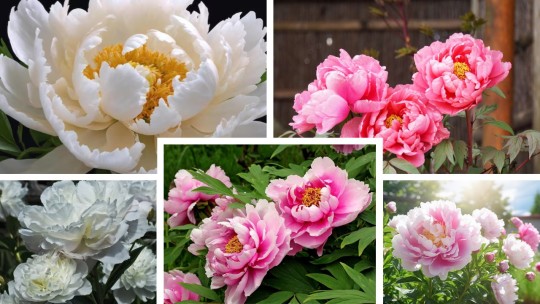


-> 5.1.) Peony Symbolism:
Peonies (Paeonia) are known as mǔdān (牡丹) in China and were regarded as China’s national flower during the Tang Dynasty (618 to 907 A.D.). In accordance with this, they symbolise prosperity, honour, wealth and beauty, love and happiness. The Chinese term for peonies means "the most beautiful” while other Chinese names for peonies are "fùguìhuā" and "huawang," which translate to "king of the flowers" and "flower of riches and honour," respectively. In Japan, peonies are called botan (牡丹) and symbolize shyness, wealth and regalness in hanakotoba. The flower's profound appearance, notably its multitudes of large petals that are thin and silk-like, is where the peony’s symbolism of wealth and regalness originated. In Western floriography, peonies represent bashfulness and compassion.
-> 5.2.) Peonies in MDZS:
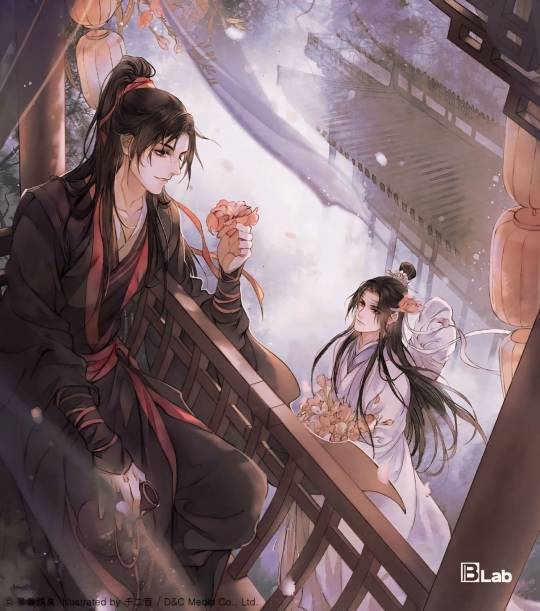
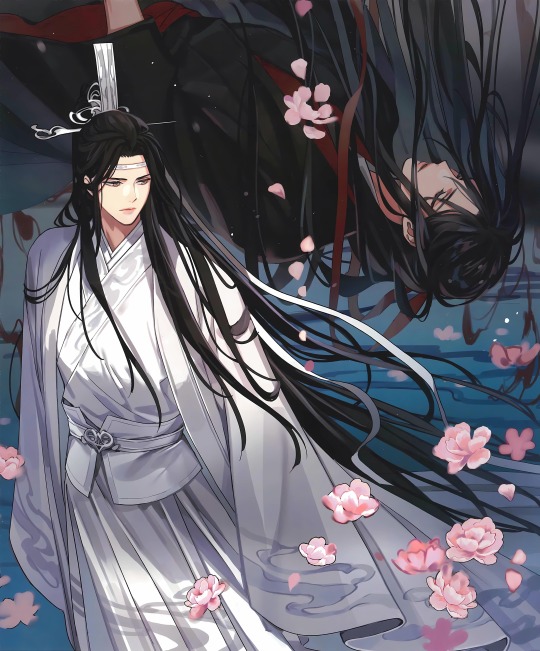
In the series, a white peony cultivar named “Sparks Amidst Snow” is used as the symbol of the Langling Jin Clan. It is said that “by comparing themselves to the king of flowers, they implied they were kings among immortals” (MXTX, v.1, p. 65). This ties in with the peony flower’s symbolic meanings of prosperity, wealth, honour and regalness. Furthermore, pink peonies are often associated with the novel’s central love story between Wei Wuxian and Lan Wangji. During the Siege Hunt at Mount Baifeng, Wei Wuxian throws a pink peony to Lan Wangji amidst the parade. Later, while on a trip to Yunmeng, the latter once again encounters Wei Wuxian who throws him another pink peony. In this audio drama adaptation of this scene, Wei Wuxian asks a ghost woman what the meaning of peony is, and she responds that it means "wishing you would return my feelings" or to part with a heavy heart." Years later, following Wei Wuxian's death and resurrection, he finds a pressed peony flower that Lan Wangji uses as a bookmark. This peony was noted by Wei Wuxian as being “extremely well preserved, [with] the colours still vivid and the veins on its petals so delicately textured that it still looked alive” (MXTX, v. 3, p. 191). Given Lan Wangji's sentimental nature, this peony is undoubtedly one of those given to him by Wei Wuxian. The flower’s association with the pair ties into its symbolic meanings of love, compassion, and happiness.
-> 6) Willow Tree
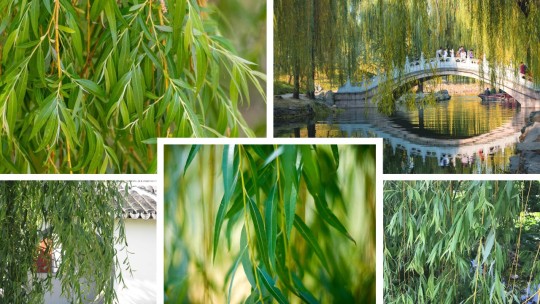


-> 6.1.) Willow Tree Symbolism:
Willow trees are known as liǔ (柳) in China. They are regarded as a symbol of friendship, long-lasting affection, and "urging someone to stay." Willow trees are also connected with spring, therefore they can represent renewal, resilience, the cyclical cycle of existence and the revival of life after a dormant period in winter. Additionally, the willow tree's supple branches can convey an image of meekness and humility. The willow tree's interwoven branches symbolise the depth of friendship because similarly to how branches connect and support one another, genuine friendship is also based on trust, understanding, and mutual support. The willow tree is also associated with separation from loved ones, prompting feelings of sorrow and longing. Willow branches are commonly utilised in Chinese funeral rites as a symbol of grief and remembrance. Willows, known in Japan as yanagi (柳), represent obedience, independence, and the melancholy of love in hanakotoba. The willow’s symbolism of obedience is derived from how its leaves sway in the wind. In contradiction with this, its symbolic meaning of freedom also stems from how freely its leaves sway in the wind. In Western floriography, willows are associated with both freedom and sadness. Weeping willows in particular represent grief, melancholy, and mourning.
-> 6.2.) Willow Trees in MDZS:


Given its symbolic meanings, willow trees can be associated with Jiang Cheng and Wei Wuxian’s complicated, but strong dynamic. This is supported by Wei Wuxian specially mentioning a willow tree when remising about his youth spent in Lotus Pier with Jiang Cheng—“there was an old willow tree rooted on the bank, with a thick, sturdy trunk that slanted over the water and branches that trailed onto its surface. The boys of Lotus Pier would often walk along the trunk of this particular willow tree to sit and fish from the treetop” (MXTX, v. 3, p. 109). While the duo's bond started as one of trust, support, and mutual understanding, it has distorted into one of melancholy, mourning, and longing. This juxtaposition encompasses all of the willow's connotations across various cultures. The willow’s association with spring, renewal, resilience and revival could be indicative that Jiang Cheng and Wei Wuxian’s bond could be repaired if given time, considering that they never properly reconciled because of Jiang Cheng’s reluctance—“But just as the Wei Wuxian of the past who’d extracted his golden core for Jiang Cheng had been unable to tell him the truth, the Jiang Cheng of the present could no longer bring himself to speak up” (MXTX, v. 5, p. 127).
◣━━━━━━━━━◢✿◣━━━━━━━━━◢
╰┈➤ Part 1
╰┈➤ TGCF Hanakotoba Post Part 1
╰┈➤ Other Hanakotoba Posts
[Please check out part 1 as well! If anyone has any ideas on what anime/anime theme song I should cover next in this series please lmk✿ Also, if you liked this post, check out my other hanakotoba analysis posts... Lastly, if I've gotten any of the kanji, romaji, hanzi or pinyin incorrect, feel free to correct me]
#mdzs#mo dao zu shi#grandmaster of demonic cultivation#the grandmaster of demonic cultivation#mxtx#mxtx mdzs#mo xiang tong xiu#donghua#danmei#anime#anime hanakotoba#hanakotoba#floriography#hanakotoba analysis#mdzs donghua#wei wuxian#wei ying#lan wangji#lan zhan#wangxian#wuji#wei wuxian x lan wangji#wei ying x lan zhan#jin zixuan x jiang yanli#jiang yanli#jiang cheng#jin clan#jiang clan#mdzs wwx#mdzs lwj
49 notes
·
View notes
Text
Am kinda glad that Jin Ling is a Jin, weirdly enough. Even though this clan has sabotaged him so many damn times, I know he will be able to reform it if u get what I mean.
Because this is a guy who clearly cares about the commoners and the less wealthy people in his area, like when he went to night hunt the hook ghost.
This is also a guy who has an uncle in Wei Wuxian, an honourable guy, who will absolutely steer JL in the right direction. Along with Lan Wangji who will always show his support in bunnies or his quiet prescence.
Maybe the Jin sect won't be a place where injustice reigns supreme instead it will probably become a place where no marginalised groups will be turned away anymore.
Maybe women like mianmian won't have their voices covered over their male counterparts.
Maybe illegitimate children like Jin Guangyao won't be thrown off the stairs anymore, instead they'll be welcomed by the standoffish but welcoming Jin Ling.
Sure Jin Ling will face a lot of stumbling blocks in the form of the the old, corrupted elders but he's a tenacious kid, if he wants it to happen, it will happen dammit.
173 notes
·
View notes
Text

Just some Mo Xuanyu I got inspired to draw from this plushie on Etsy
Tell me why it was so hard to draw the base outline for it... TvT
Fun fact: Mo Xuanyu is actually my favorite character in MDZS :>
16 notes
·
View notes
Text
Jin Guangshan: wbere do you see yourself in 10 years?
Jin Guangyao: in your seat
#incorrect quotes#grand master of demonic cultivation#incorrect mdzs#mdzs#mo dao zu shi#mxtx novels#jin guangyao#jin guangshan#jin clan#no truer words have been spoken
30 notes
·
View notes
Text
MDZS Question
This might sound stupid, but how do the clans stay rich?
Lan Zhan often just passes Wei Ying money without blinking.
They take no money from night hunting and do it free.
Do the outlier cultivators of pay the clan’s for their education? If they don’t how do the clans stay wealthy? Even rich people run out of money, if all they do is spend it.
#mdzs#wei wuxain#wei ying#lan wangji#lan zhan#lan clan#jiang clan#jin clan#cql#the untamed#mxtx fandom#the grandmaster of demonic cultivation#mdzs fandom#Nie clan
21 notes
·
View notes
Text
Question: What are the societal positions of the cultivation clans in MDZS world building?
Are they the major government? Are they the emperors? What kind of governing bodies are they? They have rules and laws, but I don't see them being actively political, or having direct political influence over their turfs.
Are they the church? I mean, they solve problems pertaining to spirits and zombies and disturbances in the spiritual world, so they are like temple managers and clerics? They don't have any mentions of gods, tho. They just cultivate like Buddhist monks, and WWX was particular on calling XXC as Taoist, but that is the only mention of religion we had from the novel.
Are they non-government organizations? They could just be random clans who developed cultivation methods specific to their culture and terrain and livelihood, with goals to aid the mortal world with problems pertaining to spirits. They are separate from the government, tho there were no signs of politics in the world building.
Are they feudal clans? And some clans just have cultivation talents. Because it was shown that Mo Clan is a powerful governing clan, though they're not cultivators. So we can assume that they're just random powerful families, some families can be powerful enough to build cultivation schools and be trusted institutions, like how some families can build foundations that normal people can avail help from?
Or are they the police?
I'm not sure, but in my head, they lean more towards being Buddhist Temples, and China was in a setting where the Church is also the Government.
#but what really??#mxtx#mxtx mdzs#world building#lan clan#jin clan#jiang clan#the grandmaster of demonic cultivation#wei wuxian#lan wangji#lan sect#jiang sect#jin sect
2 notes
·
View notes
Text
I think each of the Jin clan members can be fitted with a Panic! At The Disco/Brendon Urie song. Opinions?
#mxtx mdzs#mdzs#mo dao zu shi#mdzs shitposting#the grandmaster of demonic arts#the grandmaster of demonic cultivation#the untamed#cql#Jin clan#Maybe I'm delusional
2 notes
·
View notes
Text
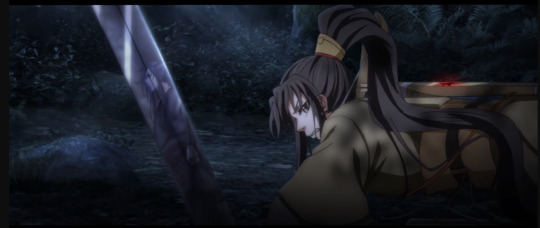
1 note
·
View note
Text
Okay, unrelated to this adorable gif of Xiao Zhan (he's so cute 💗 I wanna keep him in my pocket), let's talk about what Mo Xuanyu was wearing in canon before he summoned WWX back.
Because if you look at this costume, I swear it looks a lot like worn out Jin clan robes. The faint, pale blue near the collar, the faded gold on the sleeves, the whole thing having a kind of off-white/gold color to it--you could 100% tell me that Mo Xuanyu kept wearing Jin robes even after being banished from the sect and I'd 100% believe you just based on the color schemes for this costume alone.
And that's my headcanon: WWX gets reincarnated in MXY's body, a body which is wearing tattered Jin clan robes.
I don't know if that was what the costume designers intended, but it's what I'm going to be pretending is going on.

128 notes
·
View notes
Text

A procession of confessions.
[First] Prev <–-> Next
#poorly drawn mdzs#mdzs#lan xichen#jin guangyao#lan wangji#When Lan Xichen and Jin Guangyao flew into the scene I honestly had to hit pause and catch my breath.#I did not expect them to waltz in and start flirting with each other.#With this comic I have officially drawn all sides of 3zun doing something homoromantic with each other. Nice!#Lan flirting is offering to organize events. “Please...let me open up my planner...do you want to create a shared google calendar with me?”#“Oh...we will have to spend so many nights at a desk working out logistics. Do you want to see how good I can balance these accounts?”#Lan events probably have the best 'stayed within budget' reputation of all the clans.#What I mean to say is...Where are the Lan Wedding planner AUs? Actually scrap that: ALL the sects as rival wedding planners.#The Jins would do high end clients with huge budgets. Lans do traditional style weddings. Yunmeng Jiang promises fun and colour.#Sit with my vision for a moment. I'm going to move on to another topic but don't *not* marinate on that idea.#Pour one out for Lan Wangji. For having to sit through all this flirting and confessing while he ruins his own chances.#He will have to wait many years before living out his romantic fantasies. Until then...he must wait in the wings for his cue.
1K notes
·
View notes
Text











WEI WUXIAN & JIN RULAN in THE UNTAMED ── episode 40.
#jin ling#wei wuxian#theuntamededit#mdzsedit#cqledit#userfra#sandushengshou#dramasource#cdramaedit#asiancentral#the untamed#userbbelcher#chewieblog#tvedit#*#*gif#*1k#jiang yanli and jin zixuan having a staring contest in heaven rn#anyway translation by me bc i hated the official netflix ones#i feel like they lacked so much of his Drama#also. we should all be thankful lan clan raised a yuan bc woooow
2K notes
·
View notes
Text
Módào Zǔshī Hanakotoba Analysis Part 1

◤━━━━━━━━━◥✿◤━━━━━━━━━◥
-> 1) Gentian



-> 1.1.) Gentian Flower Symbolism:
Gentian flowers (Gentiana) are called lóngdǎn (龍膽) in China. They grow in the highlands, where the air is pure, inspiring an aura of dignity and refinement. They mainly symbolise loving someone despite their grief or melancholy. However, they also represent courage, perseverance, hope, and tranquillity given that they grow tenaciously despite the challenging conditions present in the alpine places in which they occur. In Japan, gentians are called rindō (竜胆) and hold the meanings of justice, serenity and loving someone despite their grief in hanakotoba. The latter of which is said to be derived from the flower’s vivid, blue-violet colour that evokes the image of sadness. In Western floriography, gentians symbolise love, intrinsic worth, humility, sincerity, passion and devotion.
-> 1,2) Gentians In MDZS:


In the Cloud Recesses, the Gentian House, the residence of Lan Wangji's deceased mother, is named after the field of gentian flowers growing around it—“the area around this cottage was abundant with purple gentians. The flowers were dainty and delicate, and their colour was vivid and captivating, capable of ensnaring the hearts of all who wandered there. They seemed to emit a faint glow under the night’s dark sky. The sight was beautiful, like a dream, an illusion” (MXTX, v. 3, p. 179). The symbolic meanings of gentians tie in well with Lan Wangji‘s character arc and his feelings towards Wei Wuxian. Like the gentian flower, he exudes dignity, humility, serenity, and refinement. Throughout the series, he has shown his immense sincerity, devotion, and passion for his love interest. Lan Wangji suffered not only the loss of his soulmate, but also the agony of watching that person descend into darkness and sorrow while knowing there was little he could do to help. This relates to the gentian's symbolism of loving someone despite their grief and melancholy. Before Wei Wuxian's full grasp of Lan Wangji, he was often characterised as gloomy and distant—“furthermore, no matter how thoroughly Lan Wangji was praised as an unrivalled rare beauty, nothing could help the fact that he looked profoundly embittered, as if he had lost his wife!” (MXTX, v. 1, p. 73). This further ties into the gentian’s more sombre symbolism.
-> 2) Pine



-> 2,1) Pine Tree Symbolism:
Pine trees (Pinus) are known as sōng (松) in China. They are considered a symbol of evergreen sentiment and everlasting affection because of their longevity and evergreen leaves. In Japan, pines are called matsu (松) and symbolise of immortality, hope and sympathy in hanakotoba. In Western floriography, pines symbolise resilience, longevity, hope, renewal and pity.
-> 2,2) Pine Trees In MDZS:


In the novel, it is mentioned that pine trees grow in the Cloud Recesses where the Gusu Lan clan resides. Despite their seemingly cold and calm demeanour, many members of the Lan clan are noted to be very passionate and sentimental—therefore pine trees are a fitting symbol given their association with evergreen sentiment and everlasting affection. One of the clan’s many rules states that “only in the presence of your fated person, in the presence of the one your heart belongs to, can you allow yourself to be free of restraint” (MXTX, v. 2, p. 198). This rule is a prime example of the value the clan places on sentimentality. Despite many trials and tribulations, Lan Wangji’s love for Wei Wuxian remains strong and unwavering. Even thirteen years after Wei Wuxian's death, Lan Wangji's adoration persists, despite the apparent reality of never meeting again in this lifetime—“just as he always had, Lan Wangji looked at him… And forever after, his eyes could never move away from him again” (MXTX, v. 5, p. 170). This further ties into the pine tree’s symbolic meanings of resilience, longevity, renewal, evergreen sentiment, hope and everlasting affection.
-> 3) Magnolia



-> 3,1) Magnolia Symbolism:
Magnolias (Magnolia spp.) are known as mùlán (木兰) in China. They are considered to represent dignity, perseverance, and honour. Additionally, magnolias are utilised in traditional medicine and are believed to represent purity and beauty. Magnolias are also symbolic of the arrival of spring and are thought to bring good fortune and happiness. In Japan, magnolias are called mokuren (木蓮) and are associated with sustainability, persistence, sublimeness and a “love for nature” in hanakotoba. In Western floriography, magnolia flowers represent perseverance, dignity, honour, majesty, pride, and nobility.
-> 3,2) Magnolias In MDZS:


In the novel, magnolias are primarily shown growing in the Gusu Lan clan’s Cloud Recesses, especially near the library pavilion where Lan Wangji and Wei Wuxian studied in their youth—"The rustling yulan magnolia branches veiled the window and shut out the outside. But no matter how hard Lan Wangji fought it, Wei Wuxian’s spirited and boisterous laughter could not be so easily shut out” (MXTX, v. 1, p. 176). The magnolia’s symbolic associations with nobility, dignity and honour tie in well with Lan Wangji and the rest of the Lan clan’s values. MXTX has been reported as having developed Wei Wuxian and Lan Wangji’s character traits in opposition to one another while keeping their core values and outlooks on life, morality and the world aligned. The magnolia’s symbolic meanings greatly exemplify this. At first glance, the tree’s symbolism of dignity, honour, persistence, majesty and nobility align greatly with young Lan Wangji’s character. However, these same traits also align well with young Wei Wuxian’s ideals along with the magnolia’s additional symbolism of happiness, pride and perseverance.
◣━━━━━━━━━◢✿◣━━━━━━━━━◢
╰┈➤ Part 2
╰┈➤ TGCF Hanakotoba Post Part 1
╰┈➤ Other Hanakotoba Posts
[Jeepers... I've been working on this on and off for months, xo I'm relieved to finally have it out... Please check out part 2 as well! Also, if you liked this post, check out my other hanakotoba analysis posts... Lastly, if I've gotten any of the kanji, romaji, hanzi or pinyin incorrect, feel free to correct me]
#mdzs#mo dao zu shi#grandmaster of demonic cultivation#the grandmaster of demonic cultivation#mxtx#mxtx mdzs#mo xiang tong xiu#donghua#danmei#anime#anime hanakotoba#hanakotoba#floriography#hanakotoba analysis#mdzs donghua#wei wuxian#wei ying#lan wangji#lan zhan#wangxian#wuji#wei wuxian x lan wangji#wei ying x lan zhan#jin zixuan x jiang yanli#jiang yanli#jiang cheng#jin clan#jiang clan#mdzs wwx#mdzs lwj
51 notes
·
View notes
Text
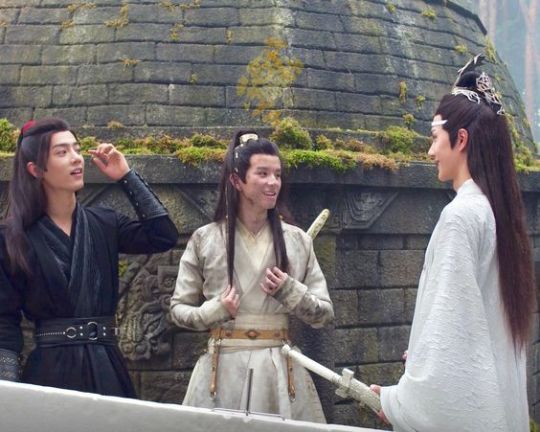

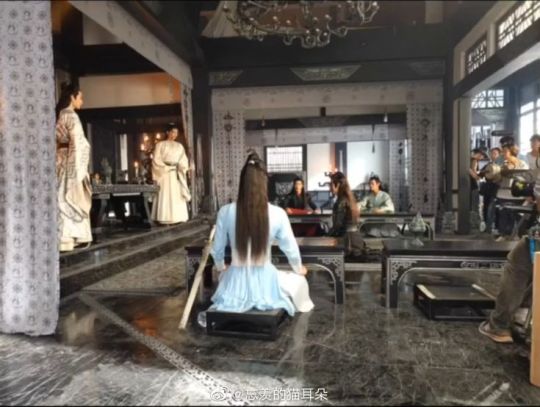
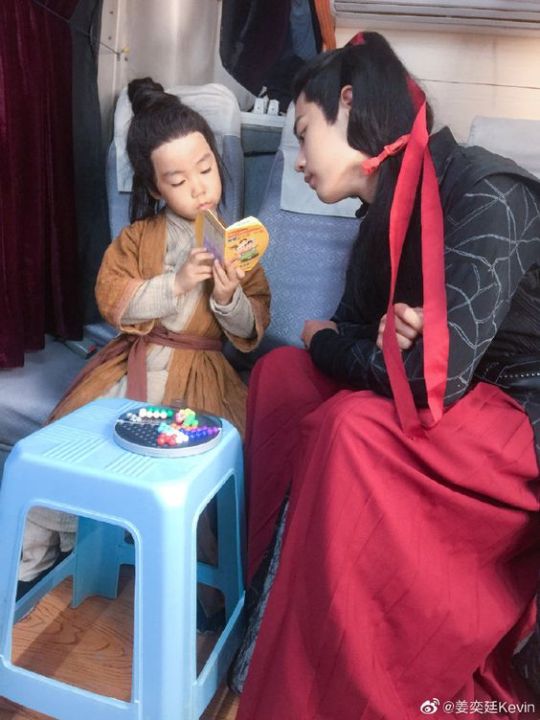

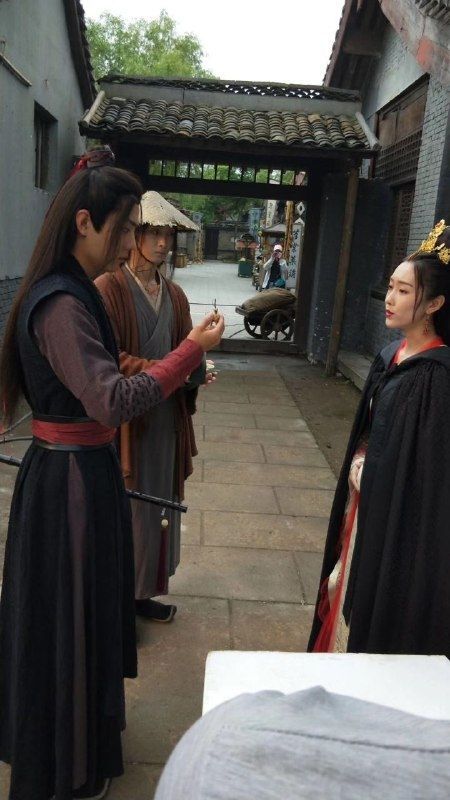
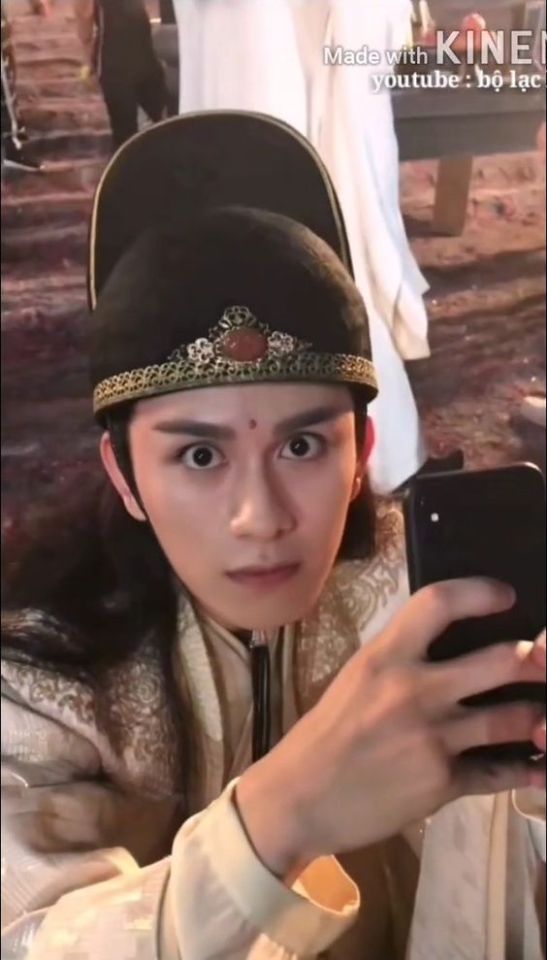
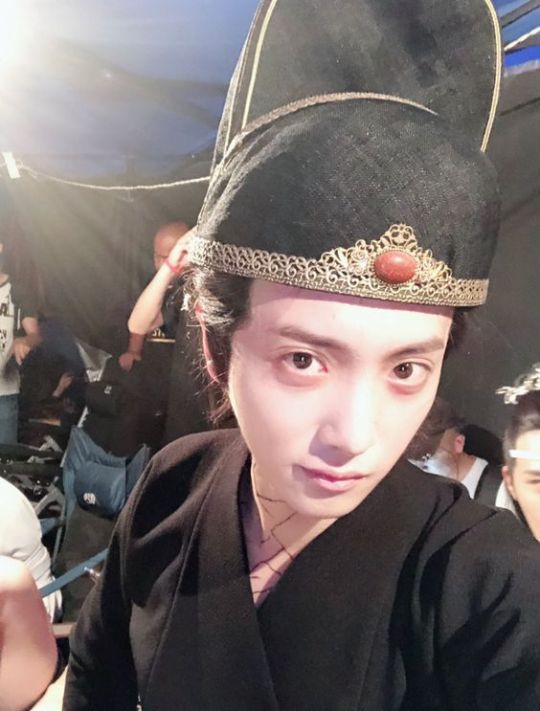
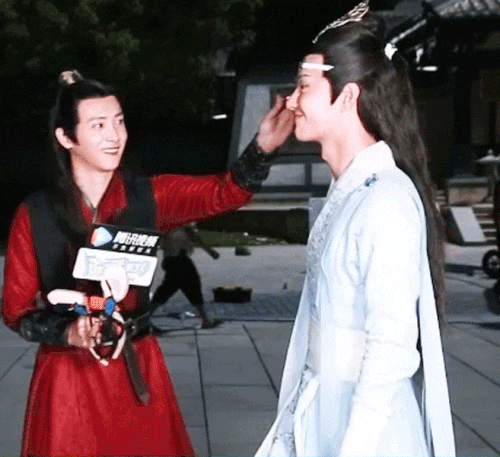
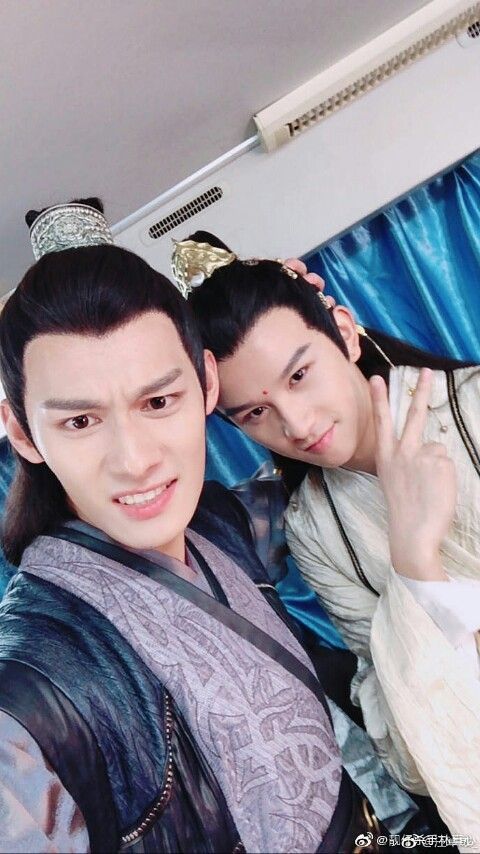
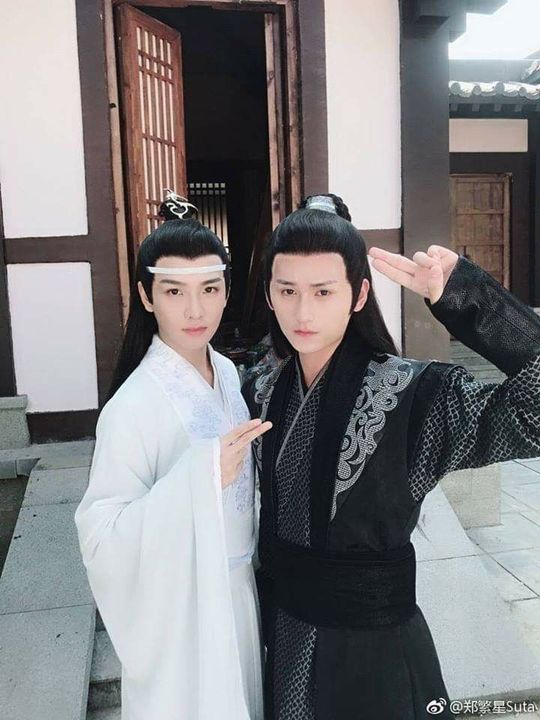


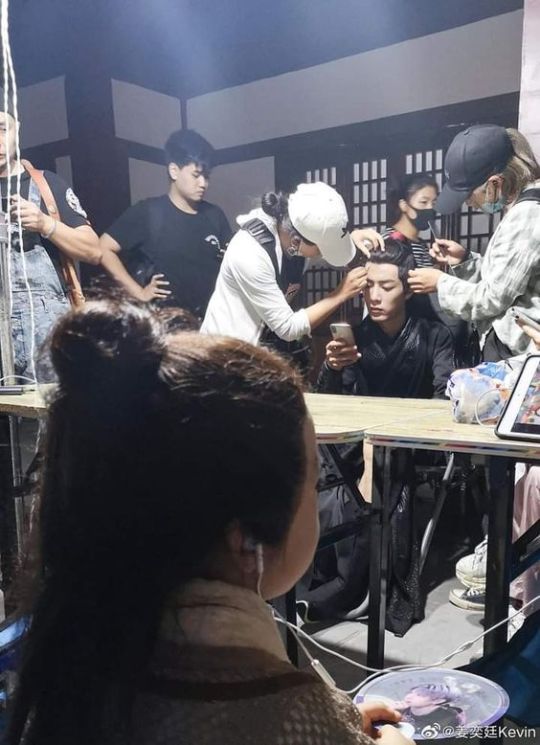

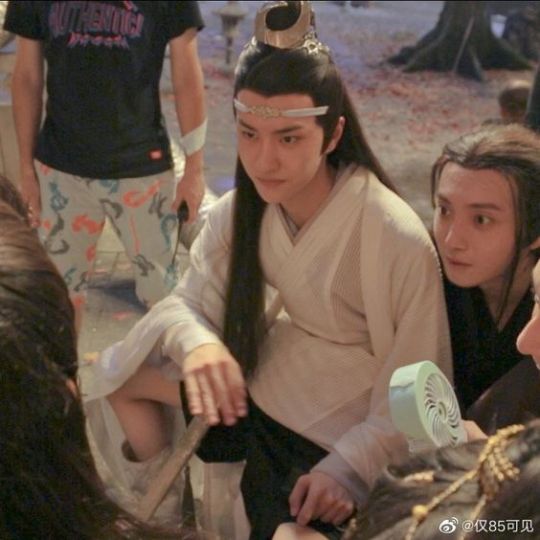

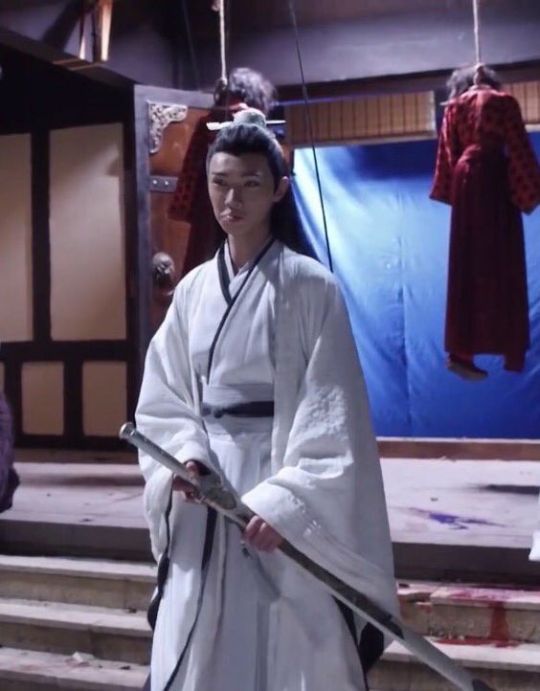


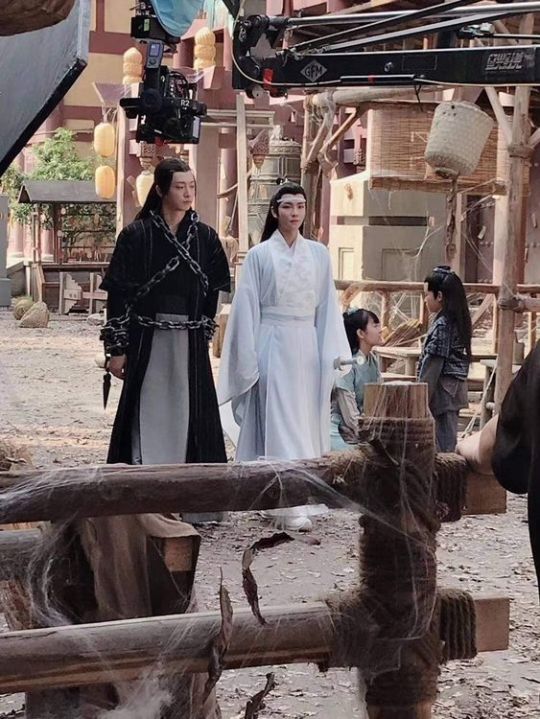
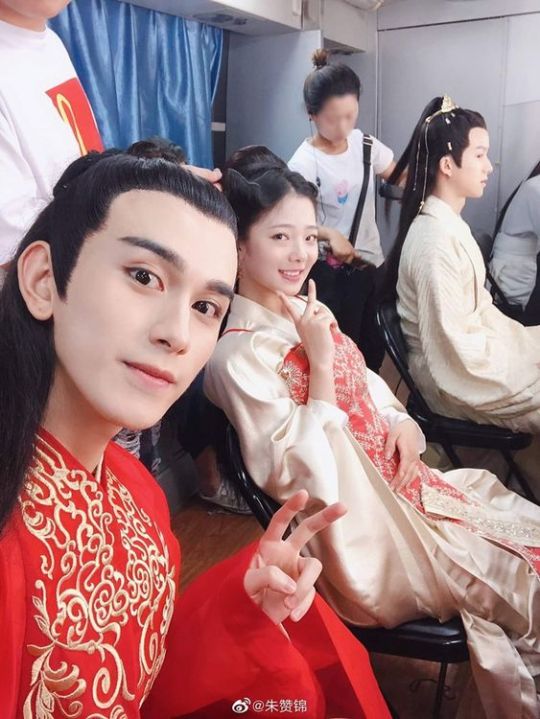

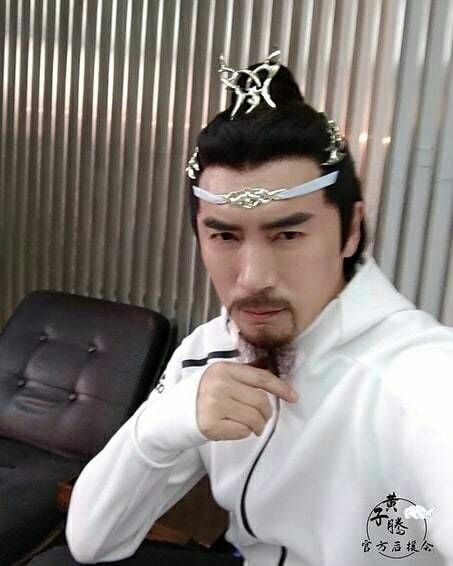
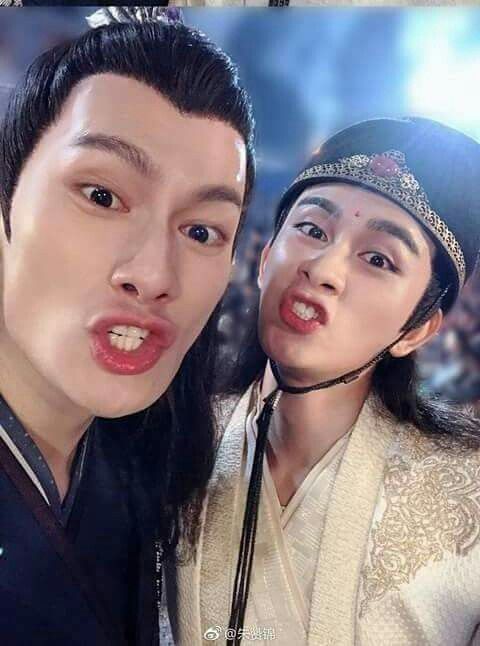
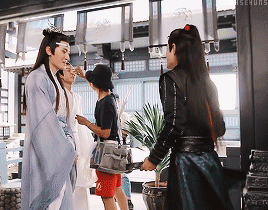

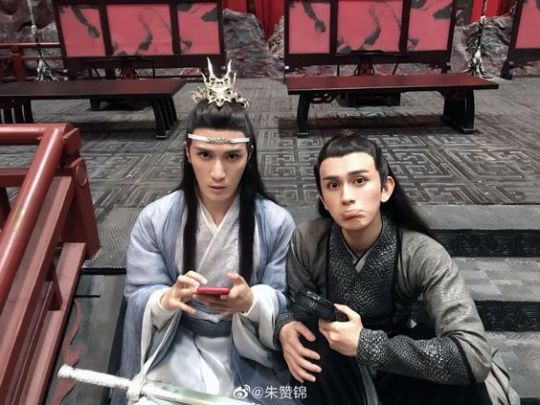
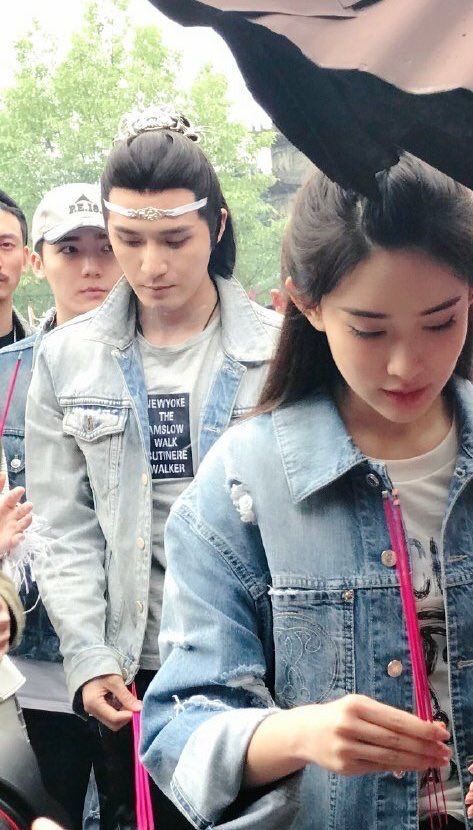

Oh my Untamed
#陈情令#肖战#tencent video#xiao zhan#xz#sean xiao#wang yibo#the untamed#theuntamed#cql#mo dao zu shi#mdzs#the untamed 陈情令#cdrama#chinese drama#wen ning#jin guangyao#cql lan zhan#cql wei wuxian#wei wuxian#lan wangji#cql cast#cql bts#lan zhan#lan xichen#lan sizhui#lan clan#jiang cheng#wangxian#wen qing
1K notes
·
View notes
Text
I feel like too often people frame Nie Mingjue's issues as ignorance borne from safety. Like, they think that because of his privilege as a sect leader he doesn't know what it's like to be in danger and forced to make hard choices to survive. And I disagree. Strongly.
First of all, Nie Mingjue is very familiar with death not only from war but from. You know. Actively dying since the age of fourteen. Let us not forget Nie Mingjue is dead! Super dead! And maybe he didn't die the exact way he expected to but he did, absolutely, know he was going to die. To act like Nie Mingjue is unfamiliar with the scenario of "do something you find morally reprehensible or die" is to ignore that he has been living that exact scenario and chose death.
Nie Mingjue knows death is a risk for someone like Jin guangyao, in fact he explicitly acknowledges it even in his worst moments like the stairs in chapter 49. Had his issue been ignorance, then he would've responded to Jin Guangyao saying that he's in danger and has to sacrifice others for his own safety with "No you aren't you'll be fine." But he doesn't. He accepts the fact that jgy is in danger with no qualms and says: then you should die.
That's not him betraying his values, those are his values. He is, essentially, pro-suicide. Jgy is like hey I have a moral dilemma what should I do and nmj straight up goes "Kill yourself" and earlier that same chapter when he was faced with a moral dilemma he went "I'm gonna kill myself." He believes the solution to moral dilemmas is suicide! He is extremely consistent about this! When it's pointed out to him that it would have been dangerous for Wen Qing to oppose Wen Ruohan it doesn't phase him because he thinks putting yourself at risk to do the right thing is the only moral choice. The idea that he can only hold this belief because he is himself somehow not in danger, again, requires you to ignore that he is dying the whole time. And it doesn't deter him. He is the idea of self-sacrifice as a moral good taken to its absolute logical extreme. Someone who is ready to die and demands the same from everyone else.
It makes him a very fun case study for fandom, because a lot of fandom spaces also tend to revere self-sacrifice as the ultimate good, and yet we get very uncomfortable when someone starts demanding it of characters we love. Like woah, hold on, that's a bit too far isn't it? Only we the audience get to do that!
#mdzs#mdzs meta#nie mingjue#i got a bit spicy at the end there#one wonders of there is perhaps a theme around sacrifice the story is working with here#what with several of the most relevant and major character relationships centering around sacrifice.#anyway I wonder what nmj thought of Wen Qing (and Wen Ning though the jin kept him alive) sacrificing herself at nightless#I have to imagine he approved. despite disagreeing with her he also approved of mianmian giving up her clan position for wwx+ the wens#so he'd think this was her 'finally doing the right thing'#his approval would've been kinda worthless. As a person who is NOT pro-suicide I think that's fucked up! the sacrifice didn't even work!#but it's diabolical to think of the Wen siblings turning themselves in and nmj being there and *praising* them for it.#unhinged behavior. I need this missing scene stat.#this is just kind of a rephrasing of my 'stop calling nmj a hypocrite' post but with a bit more focus on what exactly his values are#and how his problems stem not from him being inconsistent with those values but the fact that they are pretty fucked up!#and that those fucked up values are not a result of a lack danger but the opposite. the *inevitability* of death#he's going to die so he *has* to believe that's the right thing to do.
395 notes
·
View notes